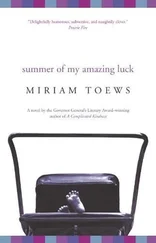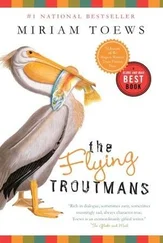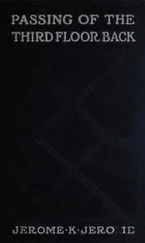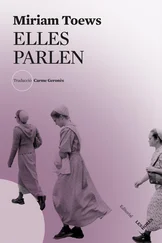I stared into houses on my way home from the museum. I ran through sprinklers. Dogs barked. I sat on the curb outside Vinny’s Pizza and waved to Bert every single time he drove past as though it were the first time and he were my best friend and I hadn’t seen him in two years. When I got to my place I found my dad in his lawn chair, asleep, with a photo album in his lap. I went into the garage and started the car for a second to see the mileage. He’d driven almost three hundred miles since after school when I slammed the door. I went back to the lawn chair and took the photo album off his lap and brought it to his room and put it back in the top drawer of his bedside table. I took a blanket out and wrapped it around his legs and took his glasses off and brought them inside and put them on the kitchen table. There was a little note that said: You know who Samuel Champlain is. One other question, I wrote back. Why didn’t she take me with her? I lifted his glasses up to the kitchen light and then I breathed on them and wiped them with the bottom of my halter top and put them back on the table. I poured some soap into the dishwasher and started it and then I went to bed.
Really big thunderstorm at night that made some of the manhole covers on Main Street pop up like champagne corks, my dad said. You just said champagne corks, I said. I thought champagne was on my dad’s list of things not to say because of the connotations of celebration. One of the manhole lids had smashed a hole through the Darnell’s Bakery display window and created a little pink river of jelly and powder. There was a soaked wedding cake upside down near the curb. The windmill got hit by lightning and one of the giant blades started to burn and then flew off into the night sky. The animals at the museum were going nuts. My dad saw it all. He woke up around three in his lawn chair soaked in rain, got up, and drove around town watching things smash and burn all night. I mean, was that fun or what? I asked him. He looked at me like he knew me from somewhere, but where?
I slept through the whole thing dreaming that I had a ton of chest hair.
When I woke up my dad had one buttock perched, barely, on the end of my bed. His arms were folded, his legs were crossed and he was staring at the floor.
Oh you’re awake, he said.
What are you doing here? I asked.
I just wanted to say something, he said.
Say it then, I said, and he told me about the storm. I listened and nodded and then he said don’t be too surprised if things are a little different when you get up. And then he left. I waited for a minute and then I got up and walked into the living room and found out that the couch and love seat and coffee table weren’t there any more. I went into the hallway and saw my dad’s Thursday shoes and they had little cards on them with writing as a reminder of what he was supposed to do the next day. I picked one up and it said: Develop new life strategy. Fridays clearly were big days for him. The phone rang and I answered it and it was him and he said I should really try to make an effort to go to school. He said he knew it didn’t mean anything to me and that he didn’t blame me or anything but that grade twelve was something I might want in the future.
What a funny word, I thought, future.
I said okay. I would. I asked him why he was getting rid of the furniture and he said he liked empty spaces because you can imagine what might go in them someday.
We were quiet for a long, long time. Then I told him I wasn’t going anywhere. That I’d never leave him. And he said well…and then nothing else.
Champagne corks, eh? I said. He said it was wild. He told me he had a library meeting after school and I said I’d have a really super-nice meal ready for him when he got home and we could watch TV together in the evening and go for ice cream later on. We said goodbye.
I looked down at the table and saw his note. He’d answered my question, sort of. She didn’t take you with her because you were sleeping when she left.
Finally. Hmmm. I guess he meant that I had stopped believing in hell and was no longer having nightmares. Maybe. Hard to say. I think I knew another part of the answer which was that she knew he needed me more than she did. I’m pretty sure she left town for his sake. It would have killed him to choose between her or the church. The only decision he’d ever made without her help was to wear a suit and tie every day of his life. How could he stand up and publicly denounce a woman he loved more than anything in the world. And how could he turn away from the church that could, someday, forgive his wife and secure their future together in paradise, for all time. He was stuck in the middle of a story with no good ending. He had the same disease I had.
I smoked a Cap and listened to “Down by the River” over and over while I got ready for school. I thought about all the things my dad liked to eat. I heard my mother say Nomi, there is always the possibility of forgiveness. Remember that. And I heard Tash saying oh my god. After she left I got a job at Kids Korner, the town daycare. My first job there was to hang out and play with the three-and four-year-olds but I got moved to babies after Mrs. Groening, the daycare director, caught us dancing to the Beatles with big pink hearts taped to our cheeks and foreheads. The next thing I knew I was sitting in the dark nursery while four or five babies in cribs had their afternoon naps. I couldn’t read because it was too dark. It was clinically impossible not to fall asleep, especially after I’d suffered so long from insomnia. I tried all sorts of things to stay awake. Thinking. Humming. Amphetamines. Nothing worked. Eventually I was caught fast asleep in the rocking chair and fired. The older kids gave me a going-away card. It said thank you for teaching us how to play toilet tag. No mention of the fact that I tried to teach them how to shake their Menno booties. I miss kids. The way they react to everything like they’re alive.
In the morning the two grade twelve classes had a baseball tournament. I didn’t have a glove so they put me in centre field four hundred miles away from the action and after about twenty minutes of walking around in a tight circle I decided to stand perfectly still with my hands on my hips and my legs spread wide apart and just not move the entire time. I could hear the far-off muffled whoops and cheers of the game and see tiny figures running around the bases occasionally. When it was our turn to bat Mr. Quiring yelled Nomi! Come in! and I’d sprint back to the dugout as fast as I could. I decided to do that all day. I would either speed-run or not move at all.
When it was my turn to bat I ran to the plate and then stood there frozen with the bat on my shoulder and the pitcher threw me four balls for a walk. Mr. Quiring kept saying to the batters: Leave one go by. When the ump said take your base! I dropped the bat and bolted like hell for first. Then when I got there I froze in the type of primed position that indicated my readiness to take off to second. I wondered if I could spend my entire life in two gears, neutral and fourth. I was so tired of shuffling. Martin Schultz was playing first base and he asked me if I was retarded.
In the afternoon we went swimming at St. Malo, past the closed-down drive-in and the dump. There was a dam that was covered in green slime and perfect for sliding headfirst into the water. A group of girls from my homeroom were sitting on the sand crying and hugging and when I sprinted over to ask them what was wrong they said, this is the end. I’m sorry, I said. I sat perfectly still except for lighting a Sweet Cap. Tina asked me if I was trying out for Up With People in the fall. Then we had hot dogs and popsicles and chips and the confident boys snapped towels at the pretty girls and the other kids stared at them or played Frisbee. Len brought me home in his Vauxhall. He asked me if I wanted to see what it was like to ride in the trunk and I said yes I do. He opened it up but it was full of shit he was too lazy to move around so I sat perfectly still in the front seat and then bolted from his car to my house when he dropped me off. When I got inside the phone was ringing. It was Sheri from the yearbook committee. She was wondering if it was okay if they wrote under my picture: Do do do do do do do do. I asked if that was the theme from The Twilight Zone and she said yeah. I asked how the readers would know and she said, They’ll know.
Читать дальше












